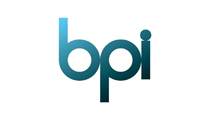This website uses cookies so that we can provide you with the best user experience possible. Cookie information is stored in your browser and performs functions such as recognising you when you return to our website and helping our team to understand which sections of the website you find most interesting and useful.
Business News Legal Top Stories
BPI launches private prosecution against former file-sharing site
By Andy Malt | Published on Tuesday 7 October 2014
Record label trade group the BPI has confirmed that a trial against two people involved with a defunct file-sharing forum called Dancing Jesus will begin this month.
The UK-based website in question was taken offline in 2011 after US Homeland Security seized the server on which it was hosted. According to reports at the time, City Of London Police arrested both the site’s administrator and one of its most prolific uploaders, known as Trix. Although initially subject to a police enquiry, the case is now being brought to court via a private prosecution by the record industry.
A spokesperson for the BPI was unable to provide much detail on the case, but confirmed to CMU yesterday: “A trial is scheduled to take place at Newcastle Crown Court this month regarding the illegal distribution of music via an internet forum site called Dancing Jesus. It is a private prosecution being brought by the BPI following an initial joint investigation by BPI and the IFPI, with assistance from the US Department Of Homeland Security”.
They added: “One defendant in the case has already pleaded guilty to illegally distributing music and will be sentenced at the end of the trial”.
What exact charges the defendants will face is not yet clear. Most file-sharing court cases to date have been civil litigation rather than criminal prosecutions, although the main Pirate Bay trial in Sweden had a criminal side to it, hence the resulting prison sentences for the controversial site’s founders, who were found guilty of criminal contributory copyright infringement.
One previous file-sharing case in the UK was a criminal action, that against the file-sharing community Oink. Though the main prosecution, against the man who ran the site, was based on charges of conspiracy to defraud rather than simple copyright infringement.
That may have been because, at the time, there was little precedent in English law for targeting file-sharing platforms for so called contributory, or ‘authorising’, infringement. This is where the operators of websites which don’t actually host infringing content, but which enable and encourage others to infringe, can still be held liable for copyright infringement.
Arguably the numerous web-blocking injunctions secured in the English courts since the Oink case confirm that authorising infringement does apply to file-sharing websites under UK law. So it will be interesting to see if the conspiracy to defraud charges need to reappear in this case. It actually backfired in the Oink prosecution, because the file-sharing community wasn’t overtly run for profit, making the case for fraud weak, and the site’s owner was found not guilty.






